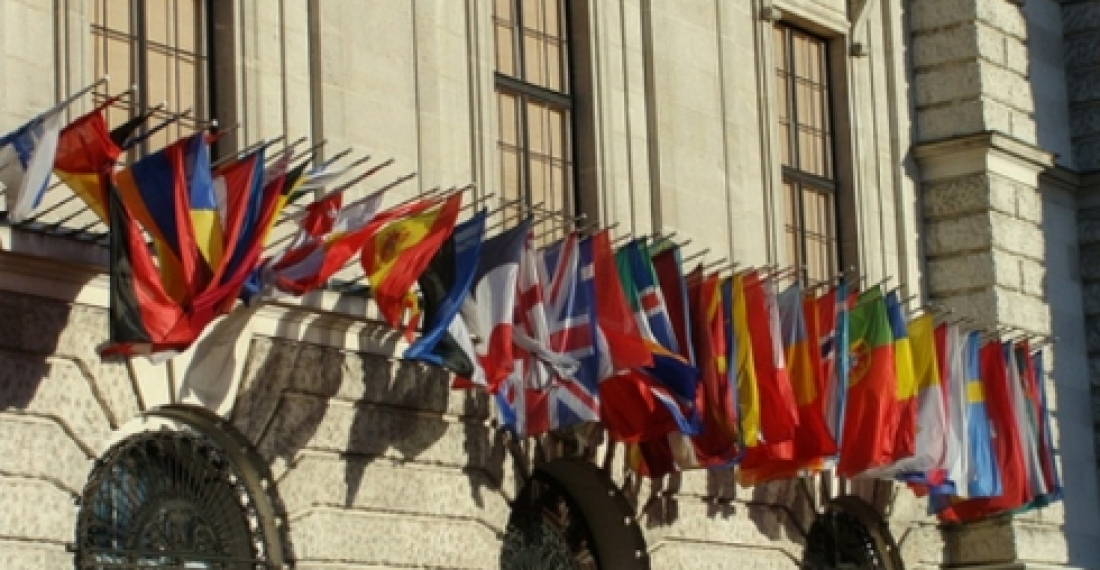Intensive diplomatic activity, being conducted in public and behind the scenes, aims to calm down the situation around the Nagrono-Karabakh conflict zone and on the line of contact separating Armenian and Azerbaijani forces. This follows incidents last week that claimed the lives of soldiers on both sides. Several others were wounded.
The Chairman-in-Office of the Organisation for Security and Co-operation in Europe, Irish Foreign Minister Eamon Gilmore is currently in the region on a visit that has been planned some time ago, but which now takes on added importance and significance. Gilmore met Armenian leaders yesterday to discuss the conflict and other issues.
In Yerevan the Irish Foreign Minister also met with the President of the self-declared Nagorno-Karabakh Republic, Bako Sahakyan. Sahakyan insisted that his republic should participate directly in the negotiations for the settlement of the conflict.
In an interview with the Armenian news portal, news.am, Gilmore said
"Escalation of violence is not the answer. The first step is to refrain from the use or threat of force and to abstain from retaliatory measures. The OSCE Minsk Group Co-Chairs (France, Russia, US) are working hard in strengthening the ceasefire and in finding a negotiated solution and the OSCE Chairmanship fully supports their efforts. Our experience in Ireland is that it takes a combination of steps in many different areas to make real progress. It is hard and takes leadership and courage from all sides. The people living in these areas deserve peace and stability, not a fragile and unsustainable status quo.
Building confidence and trust is the only way to have a sustainable resolution of the conflict. This takes time and requires efforts by all sides to create the conditions. This needs to be done in parallel on many levels. There need to be increased people-to-people contacts and clear efforts to preserve places of worship, cultural sites, and cemeteries. There needs to be increased dialogue and communication between the political leadership from all sides. A successful process needs to be inclusive. On the military side there needs to be consistent adherence to the ceasefire agreement. All parties, all actors must refrain from the use or threat of force and from retaliation. As an important step in confidence building and preventing further casualties, the OSCE has been calling repeatedly for both sides to remove snipers from the line of contact and to agree on a mechanism for investigating incidents on the line of contact."
In the meantime the Azerbaijani Ministry of Defence has told the local media that there were continuous viloations of the cease fire throughout the night from Tuesday to Wednesday. The Ministry blamed the Armenian side for the violations.
In a separate development the Parliament in the self declared Nagorno-Karabakh Republic, in a statement condemned what it termed "Azeri sabotage attempts" and accused Baku of undermining the conflict settlement process. The statement urged the international community to extend recognition to Karabakh's independence. “NKR people are determined to protect the territorial integrity of their land and increase the might of their independent state,” the statement stressed.
In the meantime the three co-Chair of the OSCE Minsk Process are preparing for a meeting between the Foreign Ministers of Armenia and Azerbaijan scheduled to be held in Paris on 18 June. During her visit the South Caucasus last week, US Secretary of State Hilary Clinton spoke of "new approaches to the conflict settlement" which she said will be discussed at the Paris meeting.
source: commonspace.eu







